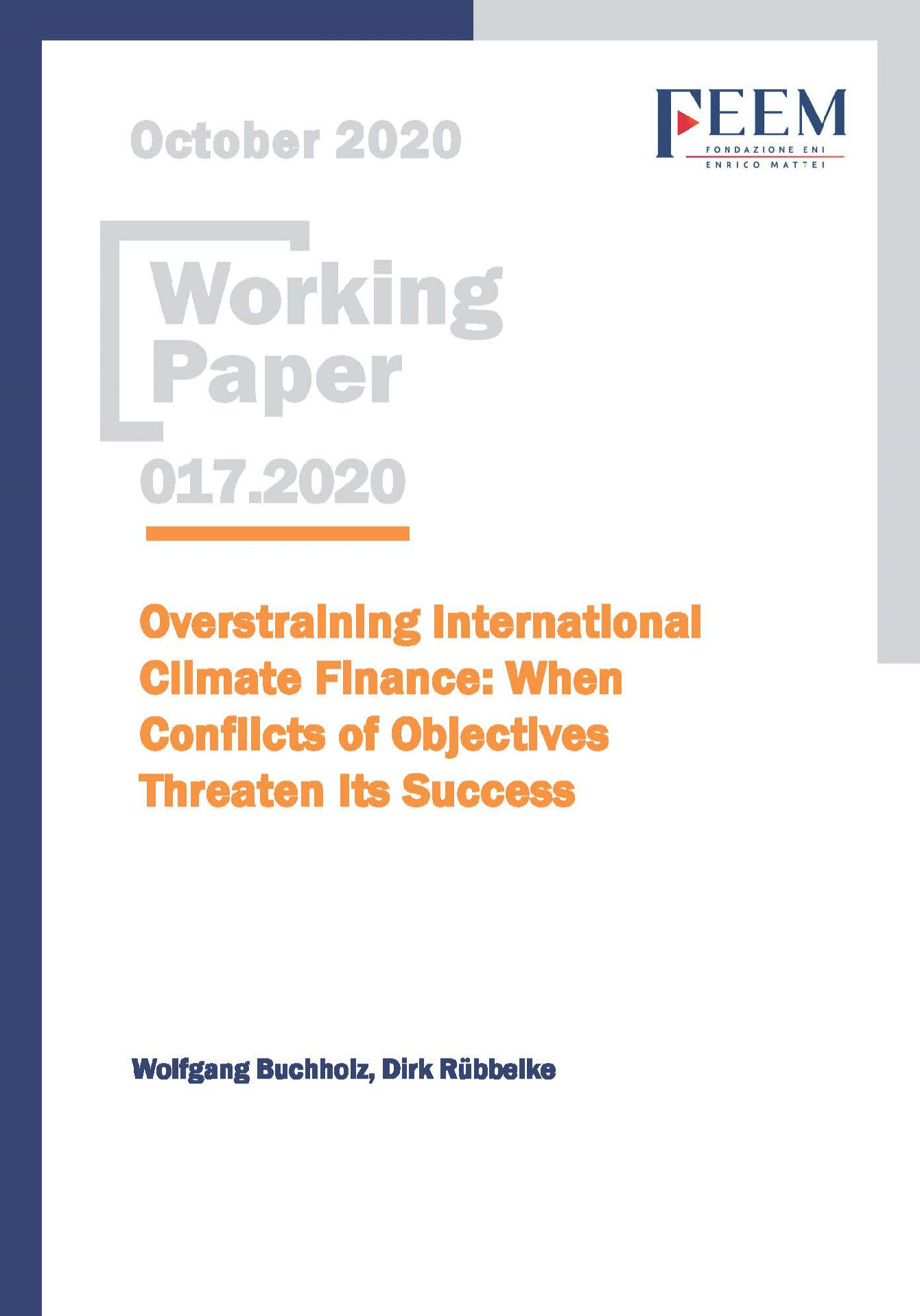Overstraining International Climate Finance: When Conflicts of Objectives Threaten its Success

30.10.2020
H41, H87, Q54, Q56
Ancillary Benefits, CDM, Climate Finance, Co-benefits, Global Environment Facility, Incremental Cost, International Transfers, Paris Agreement, Premium Prices
Firms and Cities Towards Sustainability
Stefano Pareglio
Expectations concerning international climate finance have increased considerably. In particular, provisions for international transfer schemes are an important element in the Paris Agreement. Yet, climate finance is not only seen as a tool to efficiently combat global warm-ing, but also to solve development problems in the recipient countries. Thereby, conflicts between distributive and allocative objectives arise, which threaten overall performance of such transfer schemes. Given the severity of the climate change problem, we raise concerns whether the world can afford climate transfer schemes that do not focus on prevention of (and adaptation to) climate change, but are considered as a vehicle of rent-seeking by many agents. In line with the famous Tinbergen rule we argue that other sustainability problems and issues of global fairness should not be primarily addressed by climate finance but should be mainly tackled by other means. Future designs of international transfer schemes within the framework of the Paris Agree-ment are to be based on experience gained from existing mechanisms. Therefore, we con-sider different existing schemes using a graphical technique first proposed by David Pearce and describe the conflicts between allocative and distributional goals that arise.
***
Suggested citation: Buchholz, W., D. Ruebbelke, (2020), ‘Overstraining International Climate Finance: When Conflicts of Objectives Threaten its Success’, Nota di Lavoro 17.2020, Milano, Italy: Fondazione Eni Enrico Mattei
